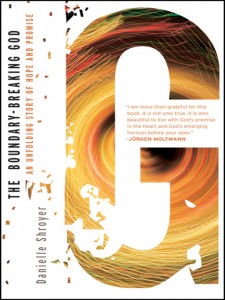The idea for this post came from a conference I’m attending next month. I’m not a speaker, and I have no formal ties to the those putting it on, I just think the theme of the conference is so significant for the future of Christianity that I’m making the trip half way across the country to attend. This post explains a little of why I think it’s so important.
Many scholars more education than I, have presented the various Biblical perspectives with more nuance than 3 categories allow. This is a more simplified look at those views and takes a more “on the ground” approach.
1.) The Bible should be taken literally in the strictest sense.
You don’t have to dig very deep to realize that there really are no true adherents to this position, only those who claim to adhere to it. In fact that’s why I left fundamentalism many years ago, it simply didn’t play by it’s own rules. Fundamentalism hangs it’s hat on taking the Bible literally and using it as it’s sole guide. It’s simply not true. No group within modern Christianity, and especially any fundamentalist groups, follow Paul’s decree in 1 Thessalonians 5:26 to “Greet all of the brethren with a holy kiss.”
Not only that but fundamentalist add prohibitions that the Bible doesn’t contain. Until I was embarrassingly too old, I believed that drinking alcohol was a sin, because that’s what I was taught in fundamentalism. The Bible does not prohibit alcohol and any attempts to make the Bible say this are more than a stretch. On the other hand, Jesus’s first miracle was changing water to wine (the stories fundamentalists have come up with to explain this away are hilarious, btw), and Paul instructs Timothy to take alcohol with him on his journey.
Those in this category might believe that the Bible itself holds authority, instead of believing that God himself exercises his authority through scripture. Some even interpret John 1:1 (In the beginning was the word…) as speaking about the scripture when it says “the word”.
2.) The Bible is inspired and literal in the ways that it’s authors intended for it to be literal.
This is perhaps the most dominant view within Christianity, and spans across a large theological spectrum, because while this group agrees that the Bible requires interpretation, they might strongly disagree with each other on what the correct interpretation is.
To use the same example above, 1 Thessalonians 5:26 would not only be interpreted as saying that Christians should simply greet each other in love, but this group would also believe that Paul himself did not intend for that statement to be taken literally by all people in all time periods.
Texts like the creation account might be interpreted with numerous subtleties from person to person, but many would believe that the writers never intended for the reader to take things like a 7 day creation literally and that the purpose of the story is simply to begin the narrative of Gods redemption of the world. Thus many would see no conflict between science and the Bible.
Those in this category believe that Bible is authoritative in so far as God communicates his authority through it.
3.) The Bible is a racist, sexist, and homophobic book, and we should acknowledge that and focus on Jesus’s message of love.
This view is small but growing. Many in the second category might agree with some of the conclusions of this group, but would maintain that a proper interpretation of the scriptures is what led them there.
Those in this last category may have an interest in proper interpretation, but ultimately believe it is inconsequential since the Bible holds no or very little authority and was written by a group of people who were less enlightened as modern readers.
Why are these views important?
…because I believe that they will structure the face of Christianity in the years to come (specifically views 2 and 3). In the age of Christendom, believers took for granted that scripture was authoritative, but we are coming out of that time. I think this is a good thing, not because I don’t believe that scripture is authoritative (I put myself in category 2), but because we are now forced to examine the nature of scripture and ask questions about why, how and in what manner it is authoritative.
That’s why I was immediately drawn to the Ecclesia National Gathering and it’s theme:
In a Western context that is increasingly suspicious of, if not hostile toward, sources of supposed authority and at the same time, constantly presented with new ones, it is little wonder that questions about the authoritative role of Scripture have become such a pressing issue.
Mission in North America then must involve turning our collective attention to how we understand and engage, corporately and personally, the Bible. The Bible is not a document – it is the unfolding drama of God. As Christians, it is our one and true story for the whole world. It’s authority in Christ is extended into our very lives by the invitation of the Spirit as we participate in God’s work. We therefore cannot know it’s authority apart from mission and by experiencing it’s authority over our lives in the hearing of it as God’s Word and responding to it in obedience. Yet, many questions remain as to how we are to read, submit, teach and preach this great story in an increasingly secular, post-Christianizing society.
This year we are joined by Dr. Scot McKnight, world renowned author and professor of New Testament at Northern Seminary. We are also delighted to have Dr. Bill Webb join us this year. Bill is well-known for his ground-breaking work on hermeneutics through his book Slaves, Women, and Homosexuals and subsequent writings. We will also be joined by Dr. Al Tizon of Palmer Seminary and author of Missional Preaching and Mandy Smith, Lead Pastor of University Christian Church in Cincinnati, OH. Mandy is also the author of Making a Mess and Meeting God.
I only plan on traveling to one conference this year, and because I know this will be a quality event, this is the one. The gathering is February 25-27, 2014 and you can find out more at EcclesiaGathering.org.
What category are you in, if any, and why? Be sure to be fair to those in other categories.
 newest book, Not Marked: Finding Hope & Healing After Sexual Abuse.
newest book, Not Marked: Finding Hope & Healing After Sexual Abuse.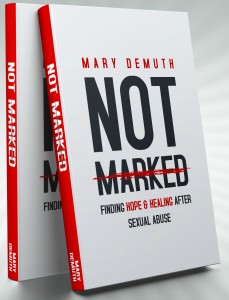 Not Marked is Mary’s first hand account of sexual abuse as a child and her healing. Mary tells her story in raw honesty and vulnerability to help not only those who have been sexually abused but also those who love someone who has been sexually abused.
Not Marked is Mary’s first hand account of sexual abuse as a child and her healing. Mary tells her story in raw honesty and vulnerability to help not only those who have been sexually abused but also those who love someone who has been sexually abused.
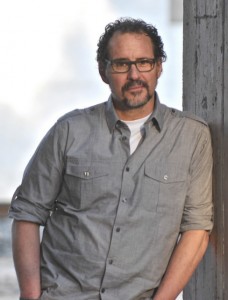 For the first episode of Seminary Dropout in the new year I’m starting out with a bucket list interview.
For the first episode of Seminary Dropout in the new year I’m starting out with a bucket list interview.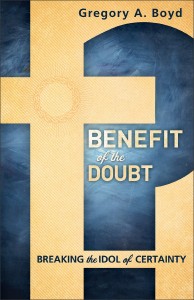

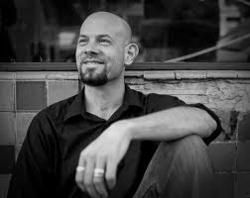
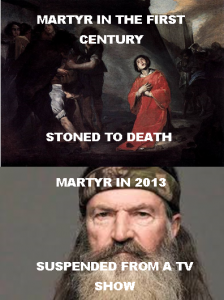

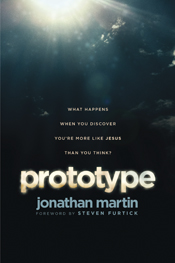
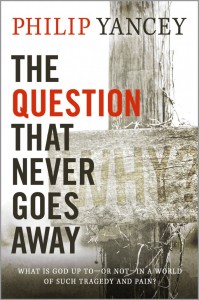
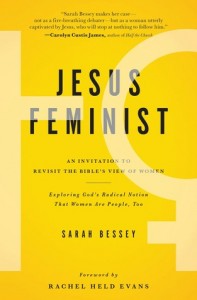
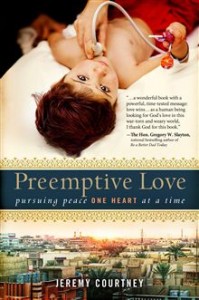
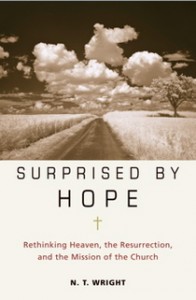
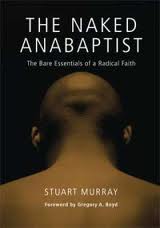 A book with a seemingly narrow niche target audience may seem like an odd pick for the #1 slot. I assure you, it’s not. Even if you don’t have the slightest Anabaptist orientation and aren’t interested at all in the conversation, this book has some things every Christian should take notice of. If for nothing else but the books discussion of Christendom ushered in by Constantine, and how it changed (many would say perverted) the idea of what it meant to be a follower of Jesus. The author Stuart Murray writes so that the story of Anabaptism and Jesus-following of the early church, gets across in an accessible and easy to understand way. I find this message so important that this book will be given to many of my family members this Christmas.
A book with a seemingly narrow niche target audience may seem like an odd pick for the #1 slot. I assure you, it’s not. Even if you don’t have the slightest Anabaptist orientation and aren’t interested at all in the conversation, this book has some things every Christian should take notice of. If for nothing else but the books discussion of Christendom ushered in by Constantine, and how it changed (many would say perverted) the idea of what it meant to be a follower of Jesus. The author Stuart Murray writes so that the story of Anabaptism and Jesus-following of the early church, gets across in an accessible and easy to understand way. I find this message so important that this book will be given to many of my family members this Christmas. Pastor & blogger Kurt Willems joins me on the show today. Kurt has a hugely popular blog called The Pangea Blog, in which he discusses ministry, theology, and culture from an Anabaptist perspective.
Pastor & blogger Kurt Willems joins me on the show today. Kurt has a hugely popular blog called The Pangea Blog, in which he discusses ministry, theology, and culture from an Anabaptist perspective.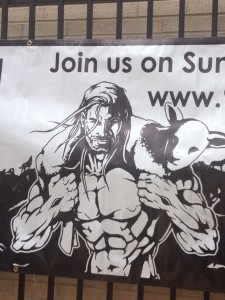

 My guest today is Sarah Bessey. Odds are, you’ve come across Sarah’s blog at some point and found her words to be insightful and refreshing.
My guest today is Sarah Bessey. Odds are, you’ve come across Sarah’s blog at some point and found her words to be insightful and refreshing. someone would say “You should really think about interviewing Danielle Shroyer!” I needed no convincing. I attended a conference in 2007 in which Danielle was a panelist and I never forgot her brilliance and wisdom.
someone would say “You should really think about interviewing Danielle Shroyer!” I needed no convincing. I attended a conference in 2007 in which Danielle was a panelist and I never forgot her brilliance and wisdom.